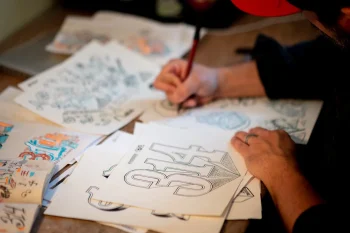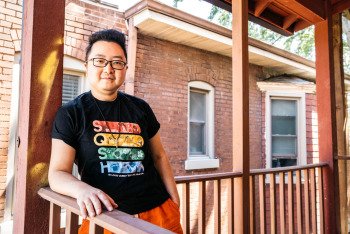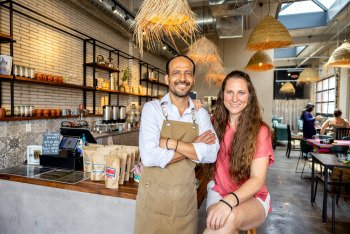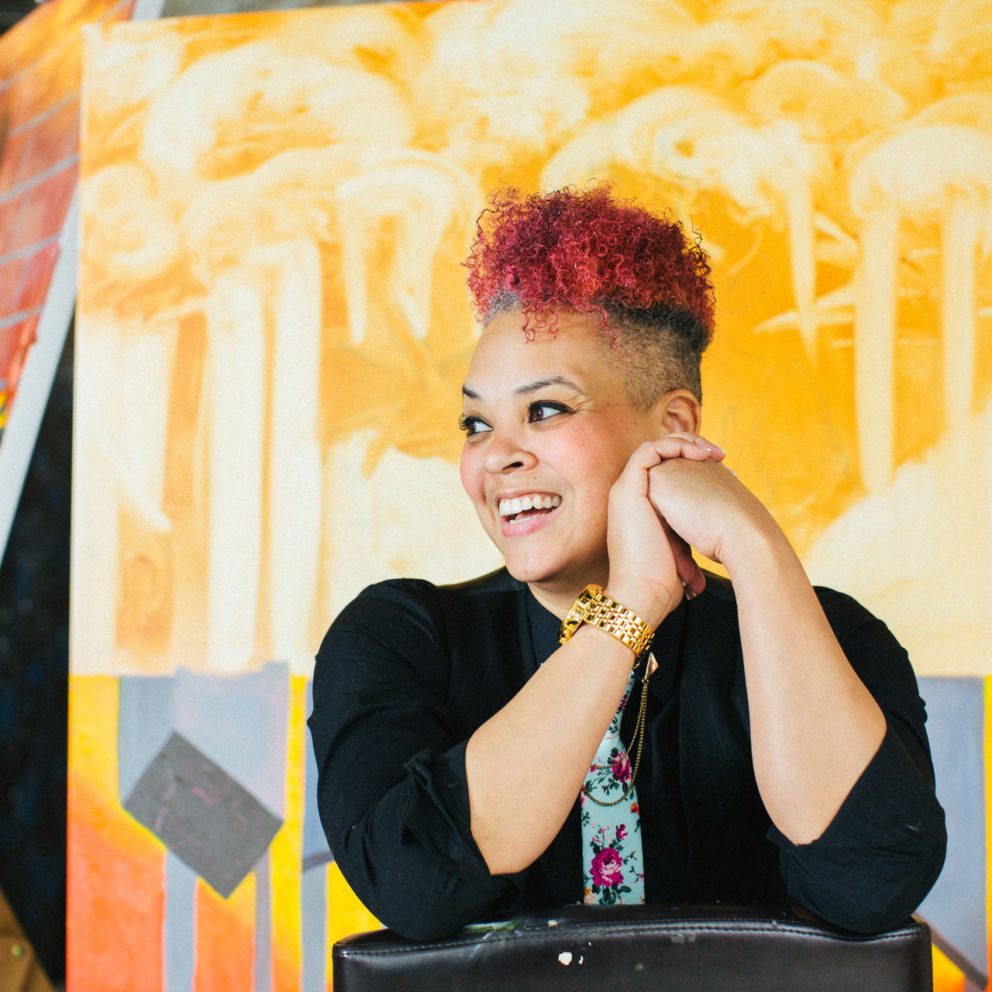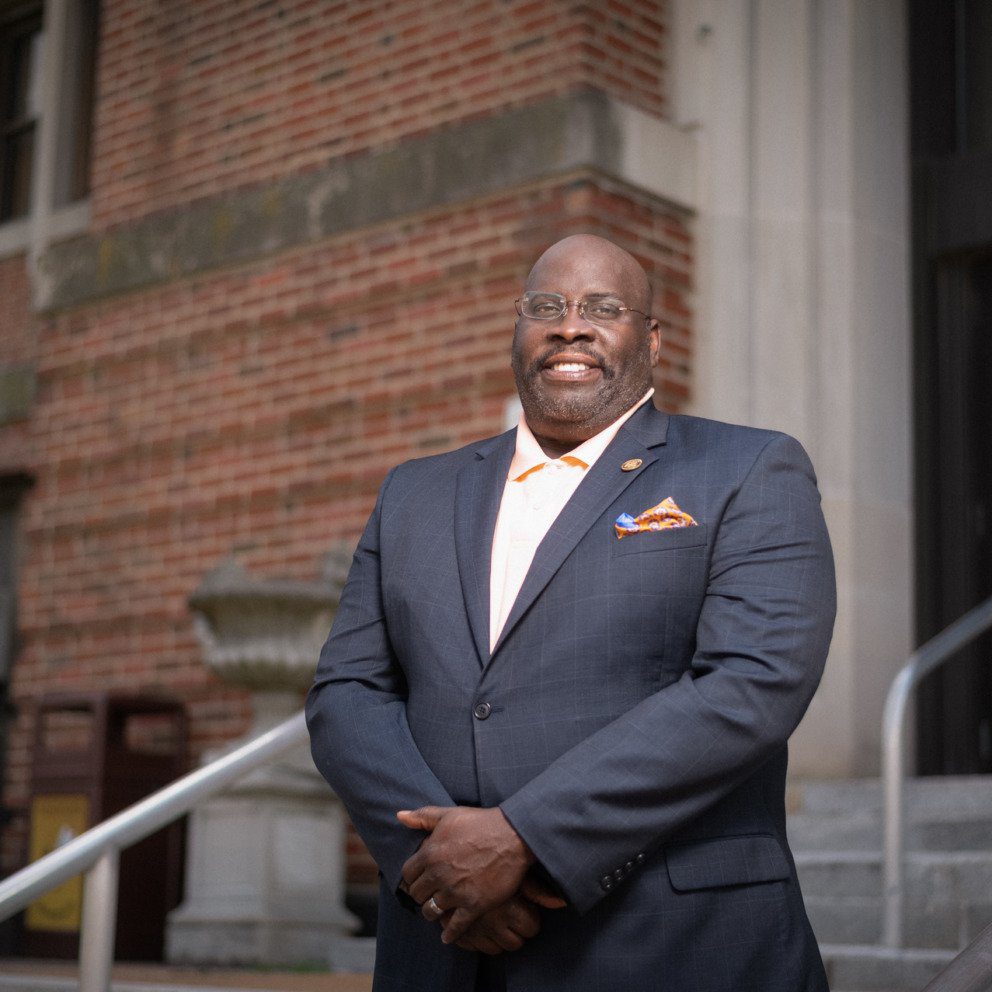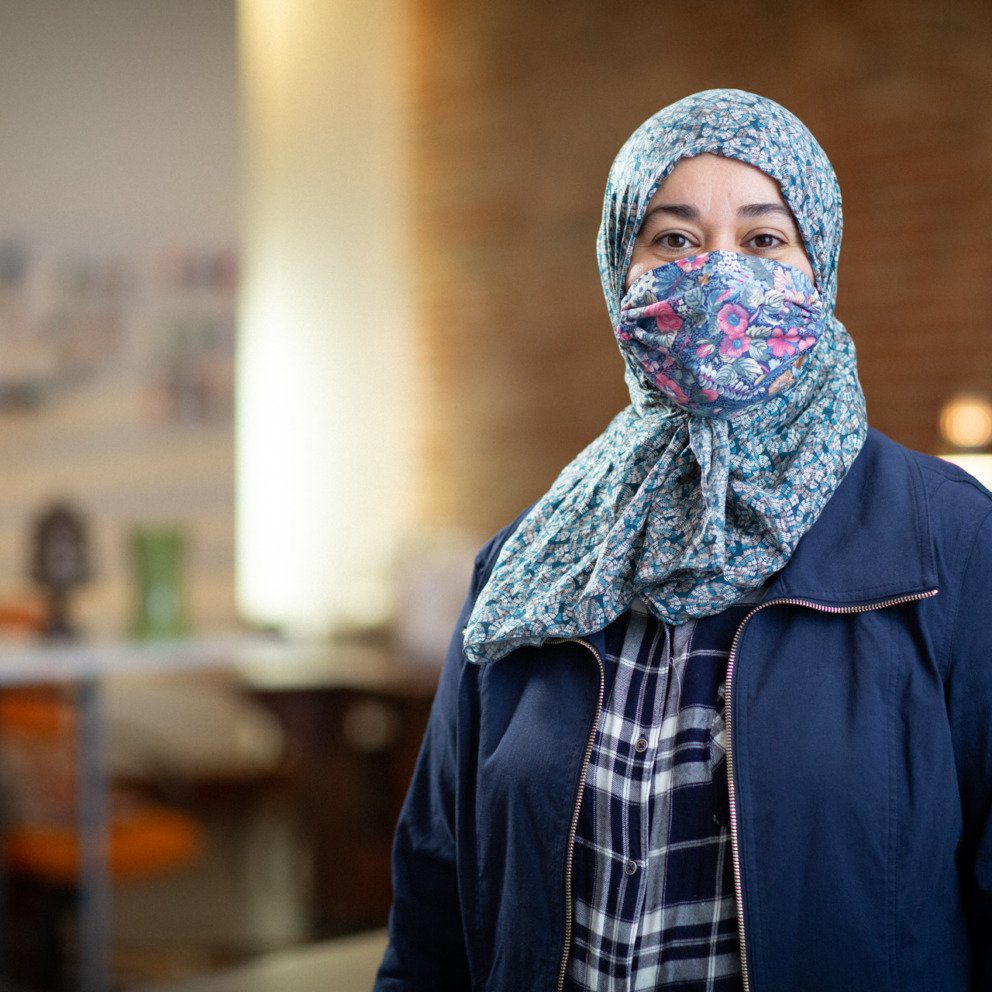Changing the Conversation
Local start-up We Stories is teaching the next generation to be anti-racist.
The majority of White families don’t talk about race at home.
Even when children are told that all people are the same, White children show stronger biases than others.
We Stories wants to change that by equipping White families with the tools – as well as the sense of urgency – to talk to their kids about race through children’s literature.
For as long as she could remember, Adelaide Lancaster has been engaged in learning about race. In college and graduate school, she took every class she could on the matter and considered herself someone who paid attention to issues of racial justice. However, when Michael Brown was killed in Ferguson in 2014, it was a moment of personal reckoning.
“I liked to think I knew something and was paying attention, but I was doing nothing as a parent, keeping everything I was learning in my head and only talking about race in an abstract way,” Lancaster says. “Even though I purported to care about racial work, you couldn’t tell me apart from my neighbors. My bookshelf wasn’t diverse; I never let anyone know what my values were; I wasn’t part of a diverse community. I knew I needed to be real about what my own silence meant and take a different approach to parenting. The only thing I knew was to start different at home.”
Lancaster’s realization would not stay confined to the four walls of her home, but instead served as the cornerstone of We Stories, the organization she co-founded with Laura Horwitz in 2015. Though they were clear-eyed about how complex issues of racial justice and equity are, they figured that if they could tackle a component of it – equipping previously unengaged White families to view anti-racism as a parenting priority – they would at least help move St. Louis to a more racially equitable future.
Lancaster’s hunch about the impact of early childhood anti-racism education is borne out by evidence. By as early as the age of three, research shows that children not only make decisions based on race even when it’s not discussed, but they also view middle-class White culture as the norm. By age five, race is seen as a major point of distinction. By intervening before these impressions become cemented, Lancaster believes that White families can be a force for generational change that can lead to a more equitable community.
The We Stories Family Learning Program uses diverse children’s books to help young families start and continue to have conversations about race and racism. Each 12-week program connects the families in that cohort to each other, providing support as they navigate these conversations and become empowered to be advocates for racial equity. The organization also works with libraries and schools throughout the St. Louis region to ensure that diverse books are accessible to all young families.
– Adelaide Lancaster
Lancaster anticipated interest in We Stories’ work, but she was overwhelmed by how much hunger there was to tackle this important issue. After 80 families signed up for the pilot program, she realized its potential to have real impact.
In retrospect, Lancaster should not have been surprised by the longing for such a conversation in the St. Louis region. In the immediate aftermath of Brown’s killing, the issue of racial equity came to the surface of the region’s consciousness as various groups focused on racial justice began doing work that forced people to reckon with longstanding systems of oppression. The result was an environment where people began talking about race from the individual to the community levels, building regional capacity in the fight for racial justice.
Rhema Anazonwu came to St. Louis for exactly that reason. Born in New Orleans, but a proud Houstonian transplant, Anazonwu moved to St. Louis to do her graduate studies in social work at Washington University’s highly-ranked Brown School. However, it wasn’t just the program’s world-class reputation that attracted her; after watching the Ferguson uprising and the movement it sparked unfold, Anazonwu knew that social work could be a lens through which she could explore race in a city where those issues were at the forefont of the community’s consciousness.
Her interest in the subject stemmed from her personal experience. As the daughter of a Nigerian father and a White mother, Anazonwu admits that her upbringing was more focused on the immigrant experience than on race, and that she was not engaged in conversations about racial identity until young adulthood.
“Having conversations about race wasn’t something we did, even though we were kids of color navigating White spaces,” Anazonwu says. “It wasn’t until my last semester of college that I realized, ‘Hey, I think I have a racial identity. Siblings, I think you do too. I’m not sure what this means, but I think we need to change things.’ I was ill-equipped to talk about it and knew I could see myself helping to figure it out but not sure how to do so.”
Anazonwu was drawn to working with children of color, first in a Title 1 school in Houston and then as an Americorp volunteer at the Houston United Way. As she searched for her path following her Americorp service, she knew she wanted to focus on the intersection of race with gender, poverty and class, and saw social work as the best avenue for doing so.
She couldn’t think of a better place to explore these issues than St. Louis, and her experience here has proven her right, even as it has been eye-opening. Whereas she describes being perceived as “racially ambiguous” in Houston, in St. Louis she has felt what it’s like to be perceived as Black and how difficult that is in America. The city’s legacy of segregation laid bare to her the legacy of systems that were built to disempower people of color. While practices like redlining may not be in use today, their effects are still apparent, as shown through the health and wealth disparities by zip code and the Delmar Divide.
However, she’s also observed a greater willingness to engage on matters of race than in other parts of the country.
“What I love about St. Louis is that this is a city where everyone acknowledges race,” Anazonwu says. “Even working at the United Way in Houston, which is a huge nonprofit, there wasn’t ever a conversation about race where I felt 100 percent comfortable when I brought it up. That collective mentality is different here.” She finds hope in the acknowledgment of race and racism, because inequalities can only be addressed once they’re recognized.
The ongoing Black Lives Matter protests after the killing of George Floyd are bringing these injustices to the forefront in the national consciousness, and Ananzonwu sees this as progress. “If we can make the entire U.S. a place where people know race and racism is real, what a different world we would live in,” she says.
Some of the conversations that We Stories encourages families to have center around racial identity. In her experience working with White families, Lancaster says that White people are often more comfortable describing or naming people’s races other than their own.
“We are really thoughtful about capitalizing White because we feel like parity is important,” Lancaster says. “And we name it because it’s too often omitted.” The Center for Social Study and Policy puts it this way: “To not name White as a race…frames Whiteness as neutral and the standard.”
Both Anazonwu and Lancaster credit such organizations as Forward Through Ferguson, WePower and Arch City Defenders for helping to bring race to the forefront of the conversation in St. Louis, but there is no question that We Stories has also played a vital role.
Five years and 1,000 St. Louis-based families later, Anazonwu, Lancaster and the We Stories team have launched the first national cohort of their Family Learning Program this summer. Though they’d received many requests to expand their work outside of the region since their inception, they were hesitant to do so because they wanted to remain laser-focused on moving the needle here, where demand remains so high that their programs are booked until January. However, seeing the cries for racial justice on the national level, they realized this was the time to expand their efforts and helped lead the conversation in communities where it is just beginning as they remain hopeful by the hunger in St. Louis to invest in truly transformative reconciliation.
“I think the moment we are in right now is remarkable, because we can appreciate what has been built here in the last six years and appreciate the regional capacity and our tremendous number of community leaders, nonprofit organizations, infrastructure, the amount of organized people and those who are following,” Lancaster says. “There is just a tremendous amount of network building and leadership development and infrastructure building that has been done; our region has a much greater shared understanding about what we mean when we say racial equity and disparate outcomes. It’s staggering and motivating. Those muscles have been built, and right now, at this moment, St. Louis is asking itself whether we want to feel really proud of that, throw our weight behind what has been built, invest in it, or will we entrench and allow the gulf between those calling for and resisting to change to grow?”
Join the Story
- Interested in joining a We Stories cohort? Sign up on their website.
- Want to see children’s book recommendations and learn more about how to talk to kids about race? Follow We Stories on Instagram.

